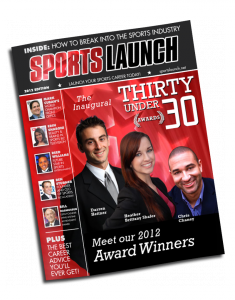 If the guy in the interview below looks familiar, it’s probably because you’ve seen his face on a number of articles here on Sports Networker.
If the guy in the interview below looks familiar, it’s probably because you’ve seen his face on a number of articles here on Sports Networker.
Chris McKinney is one of our awesome contributing authors and is consistently delivering valuable content focused on helping you launch your career in sports.
Chris is the President of Sports Launch, a nationwide career services company that is dedicated to helping college students and career-changers launch sports careers.
30 Under 30 Award Winners Revealed!
Chris’s company, Sports Launch, produces an annual magazine called “Sports Launch The Magazine”. And, today is your lucky day because the magazine is available for download right now and it is completely FREE!
–> CLICK HERE TO DOWNLOAD THE MAGAZINE
This year’s edition features the inaugural Thirty Under 30 Awards that feature some of the rising stars in Sports Business including:
- Chris Chaney: CEO – Chaney Sportainment Group
- Heather Brittany Shafer: Intern – Collegiate Sports Advisors
- Darren Heitner: Founder – SportsAgentBlog.com
- Lewis Howes: CEO – Sports Networker & Sports Executives Association
- Brian Gainor: Founder – SponsorshipActivation.com
- Erin Sharoni: Co-Host of CNBC Sports
- Max Wendkos: CEO – FanBeat
- Paul D. Martin: Social Media Specialist – Nike
- and many more….download the magazine to check them out!
Here are a few of the topics featured in the 2012 Sports Launch Magazine:
- 30 Under 30 Award Winners
- Dallas Mavericks: World Champion Front Office
- Bill Rasmussen (Founder – ESPN) – Lifetime Achievement Award
- Ben Sturner – Co-Founder of New Sports Business Academy
- Women In Sports Business Symposium
Launch Your Career In Sports Interview with Chris McKinney
I had the pleasure of interviewing Chris recently and during the interview we discussed:
- His personal story on how he landed his first sports job with the Dallas Mavericks
- Why you need to take proactive action to stand out in the crowd
- 3 things you need to know about yourself before you can get a job in sports
- How you can get your hands on a copy of Sports Launch The Magazine
Video Transcription
Trevor Turnbull: Hey everyone it’s Trevor Turnbull here with Sports Networker and I’m excited to introduce all of you to Chris McKinney. How’s it going Chris?
Chris McKinney: It’s going great, thanks Trevor.
Good Stuff. Some of you might recognize Chris already – he is a contributing author here on Sports Networker. He writes a ton of great content around how to get a job in sports and everything related to that. He’s also the president of Sports Launch, which is a company that is providing all kinds of great resources for people that are looking to break into the industry. We’re going to talk a little bit about that today as well.
Chris let’s start out with how did you get into the sports industry. What makes you passionate about being involved in the sports industry?
The way I got into the sports industry was kind of interesting. I was a college senior and I really didn’t know what I was going to do with my career. I was in a communications major and I was thinking what am I going to do. There was nothing out there that excited me. I didn’t want to sell copy machines, I didn’t want to sell insurance. Nothing against those professions, I have friends that do both and that’s fine but I just couldn’t do that because I spend a lot of money on my degree and I’m not going to wake up everyday and not be excited about my job.
So when I was a college senior I thought about what gets me excited. This was years ago and somebody said the words “sports marketing.” I’m like, holy crap; I love sports, I love marketing and this was the beginning of what I call the idea that I had. That is to create a sports marketing company.
My senior year our college was going to the NCAA Basketball Tournament for the first time and I thought how can I do something to help the team and make money at the same time. What I did – it’s a very simple concept – was I printed up, with the approval of the team and the school, a schedule that showcased all of the players and all of the highlights that they had and I sold advertising on it. I know it sounds really crazy but that was the first little business that I had. I made $3,000, I’ll never forget it and as a hungry college kid I thought this was really cool.
Long story short that little company, Impact Sports Marketing was the name of it, turned into a bonafide business. I started doing 3-on-3 basketball tournaments and beach volleyball events for three weeks down in South Padre Island and Panama City Beach, Florida and I had big-time sponsors. Ray-Ban, Pepsi-Cola, Frito-Lay. It was incredible; I made a living, put it that way. I was never taught how to do that, I was learning it on the fly and doing it from sheer gut instinct, but it was incredible and I woke up everyday excited about what I was doing. I was working in sports and I was getting paid.
What’s interesting is during that time – I ran that business for nine years – about year seven some of the guys I worked with said, “we need to do something that’s more meaningful.” Not that drinking Pepsi and having fun isn’t important because it is; but we thought we’re marketing to college students and we were in our 20s ourselves, and we thought we need to give back and give them something they really can use.
So we decided to create a publishing division and started a magazine called Next: The College Guide to Life. Part of the magazine included articles for your career, how to get a job. I was writing a lot of them, doing a lot of research and thought this is really great. This is when the email first started, the Internet just started; this is how old I am. I was getting a lot of email feedback and I felt really fulfilled.
There’s a difference between success and fulfillment if you watch the Dallas Mavericks win the NBA Championship. Coach Carlisle said there’s a difference between success and fulfillment. That career thing, that career magazine, really gave me a lot of fulfillment. I didn’t really make a lot of money from it but it gave me fulfillment.
To bring this story back around, another company approached me and said, “we want to buy your magazine but we want to change the name of it to InternetJobs.com.” I was telling you the Internet was just exploding at the time, this is in 1999.
Way back in 1999.
Way back in 1999. So we did it and I took stock in this company plus a little bit of cash; not much to write home about. Fortunately I didn’t have any mouths to feed at the time, I was single. But it sounded like a good deal.
Then, I don’t know if you remember what happened in 1999 and early 2000 but it’s called the .com bust. Here I am, a young guy that was kicking butt a little bit, making money and doing what I loved but I didn’t know what I was going to do because the magazine that they changed it too only had three issues I think. It just completely fell apart because the Internet inter street fell apart.
Here I am thinking what am I going to do, and I think maybe I’ll take my own advice. All of the articles I ever wrote were about how to get paid for doing what you love. I think about what I love; I love basketball. What am I good at? I can sell. So I thought the Mavericks are my favorite team, why dont I just pursue my dream job and work for the Mavericks?
I contacted the Mavericks and gave them a pitch. They said they weren’t hiring anybody right now, we’ve already hired everybody. This is when Mark Cuban took over the franchise and it was pandemonium in Dallas. Dallas is a hoops hotbed and with Cuban at the helm the team completely did a 180 and started winning immediately and I wanted to be a part of it. Yeah I jumped on the bandwagon but I was also a Mavericks fan way back from the beginning.
Long story short is I got a job with the Mavericks and I was loving life. I was with them for two years and it was the best two years ever because Reunion Arena was there the first year I was with them, that’s the original stadium. Then we moved into the new American Airlines Center and I was there that year.
I have to tell you, anyone who is an entrepreneur listening, it’s really hard to work for the man. There’s nothing wrong with it because the checks clear and there’s other perks along with it but when you’ve run your own business, like you are and like Lewis is and a bunch of other guys, you’ve got that hole in your gut. You’ve got to get back out there and do your thing.
I left after the second season, started another magazine; I just love publishing for some reason. Actually the Mavericks were one of my first clients and we have a great relationship with them. I remember coming home from Boston on a plane and thinking things were going well, but I said there’s something missing in the publishing world too and that is a vehicle that will help people land jobs in sports. I thought why dont I take all of the career stuff that I knew and all of the sports marketing stuff that I knew and kind of combine them. I thought let’s start a company called Sports Launch. That was kind of the reason. I wanted to take everything that I had learned in the marketing side, on the sports side and then combine that with my passion for the career side.
That’s kind of how it all happened. I know it’s kind of a long, drawn-out story but good thing you can edit this thing.
Yeah. Sometimes these stories are tough to summarize in a few words.
I need to work on that, I’m sure.
You eluded to the idea that you got this job with the Dallas Mavericks as well. How did you find your experience back then too in getting your foot in the door? What was your tactic? How did you actually go about doing that?
That’s a great question. That’s really the most important thing – how do you get your foot in the door and then how do you get in front of the company you’re targeting?
First of all you have to know who you want to work for. It’s amazing; I’ve talked to a lot of people, they’re even sports management majors or have their degrees already and they dont really know what they want to do. That’s probably the biggest thing; they say they want to work in sports and I think yeah but what do you want to do.
What I did, I already knew what I wanted to do. I wanted to sell corporate sponsorships because I felt like I could do it and I knew I could do it. I did it for all of my events – I had Pepsi-Cola and Frito-Lay – I knew how to do it. What I had to do was figure out who the decision maker was for that position was. I found out it was George Killebrew. I didn’t just send him a half-assed email, I sent a put-together email that really said exactly what needed to be said. I got a response and I thought it was incredible.
I got an interview and I guess the answer to the question is you have to know who makes hiring decisions. You cannot just send emails blindly and you have to know what you want to do in the industry. If you can figure out those two things you’re starting to get pointed in the right direction.
So that first point of contact then for your job with the Dallas Mavericks was via email? Had you met with this individual in a live networking environment as well?
Never did. Never have; it was just a cold email. I didn’t know him, he didn’t know me, he’s never heard of my company, I knew people that knew him. That’s a real fine line; a lot of people think in networking everybody knows everybody and in a way there’s some truth to that and maybe it can be effective but I just dont like that. I like to go direct.
We talked about this earlier before we started filming. It’s called direct networking; figure out who makes the decisions in hiring and network directly with that person. That’s the only person that matters. If I tried to get somebody that knew George between us there’s no telling what could happen. There’s communication lapses that don’t really work the way I want them to. I wanted to tell him who I am face-to-face or via email and then were going to get a meeting.
In my opinion you really have to go direct. There is one thing that is more powerful, I’ll give you this. If you have an uncle in the business or if there’s a close mutual friend, a genuine friend. If one of my friends was a true friend of George’s then yes. I didn’t know anybody that close to him so I didn’t go that route. If you do know somebody that’s a strong move and I definitely recommend it.
Yeah. Now I’m just going to take a wild guess here but I’m going to assume that when you approached this guy you weren’t necessarily just regurgitating your resume, saying how much experience you had; rather coming to the table with some solutions to potential problems that they might have and what actions that you might take when you first start in that role.
That’s a total guess but maybe let me know and let everybody else know the approach that you took.
You hit the nail on the head Trevor. You can’t go to somebody saying “I need a job.” You don’t want to come from a position of weakness needing a job. What you want to do is come from a position of power and become a solution to a problem.
The Mavericks were on fire, they actually didn’t need me. They were kicking butt and everybody was jumping on the bandwagon including sponsors but the one thing that I did bring to the table, and I really highlighted this, was I understood the basketball culture and I understood the relationship between sponsors and basketball events. I understood why it’s important that when they spend money they’re getting some value back. What I did is I outlined how people benefitted from my events and I said if I can show somebody how to benefit from a beach volleyball event at South Padre Island and they’re spending thousands of dollars on that sponsorship then I can probably show a client how they can benefit from sponsoring a Dallas Mavericks event.
I showed them – I demonstrated what I’ve been able to do. You have to be able to demonstrate that, even if it’s in a small way. A lot of people weren’t able to do beach volleyball tournaments in South Padre Island but what you can do if you’re just starting out is put together a golf tournament. Put together a speaker series. Especially if you’re in college, if you cant put together a speaker series you probably shouldn’t even try to get a job in sports. That’s pretty simple stuff – if you have an audience invite a speaker and record it and market it to other organizations. Make it an event. Then package it in such a way so when you get in front of somebody you can hand them something physical that’s tactile and they can look at stuff. It’s kind of like a marketing deck. So when you’re marketing yourself for a job it’s just like selling corporate sponsorships. You’re selling something.
I just put together a deck for my own career so when I was in front of George I was walking through it and he was like, “oh ok. You get it. We already hired everybody but guess what, we’ll bring you on board.” I was totally pumped and I loved it and I appreciate George for giving me that opportunity.
Yeah. You bring up a good point too Chris about the idea of having relevant experience in the area that you might want to pursue. I know a lot of the people that we have hop on our Webinars and frequently comment on our Facebook account and Twitter account talk about the idea that “I’m a student, I’ve been going to school for four years, I have no real world experience. How is anybody going to pay attention to me.” We spoke about this earlier too – to be a student of constant learning and leveraging the tools online that are available to us to research and document and to express your own personal opinion and to reach out to influencers in whatever forum of the industry you might be interested in pursuing; whether it might be sponsorship, ticket sales, marketing, social media; is a great way to establish credibility around the space that you want to be in. Even if you never interned for ESPN or a professional sports team.
Right. 100 percent guaranteed. You have to have social credibility and the good news is it’s pretty darn easy to do that. What I see is there’s a lot of students who fumble in this area, not just students but even young professionals in their 30s, they say they want to work in sports and I say that’s great and we kind of go through a couple of things. Then I say let’s go look at your Facebook page and it’s them and their homeboys throwing down shots, which is a lifestyle but you’re a professional, grow up a little bit.
You can still have fun but you need to position yourself in the marketplace and Facebook is a prime example of a platform that you need to have scene control in and a lot of people dont have scene control.
What I try to explain to people is across all media, including your resume and including your elevator pitch, it all has to have a consistent message all the way across. You’d think that people would figure that out, and most people do dont get me wrong, but that’s one of the things you have to have. A consistent message across all media. The more narrow you can make your message the more attractive you’re going to be.
Right. I don’t know the exact stats but I think it’s in the 80 or 90 percentile that employers are now going to social media to screen candidates. They’re looking at their LinkedIn profile, their Twitter account, their Facebook, they’re google their name to find out a little bit of background.
I know we preach this on our Webinars too; everything that you put out there online is a direct reflection of the brand and the message that you’re going to convey to a potential employer. It’s absolutely critical to make sure that you have all of that stuff in line.
A lot of times I think, and this is really where your expertise and some of the articles and magazines and stuff that you put out really speak to, identifying what your calling might be and really narrowing in on that focus is important.
Let’s come back to the social media side of things for a second. This is obviously fairly recent; it’s not way back in 1999 but within the last five years or so social media has played a key role in personal branding and networking and all of these kinds of things. How has it effected your business and the way that you’ve approached networking for your business and personally?
It’s a beautiful thing actually. Even though I love physical magazines and physical books it costs a crapload of money to kill trees and ship those things around the country. This year is the first time we’re going to do a 100% digital magazine. I’m not going to print any, but if somebody wants to print out a page or an article they like they can.
To answer your question it’s been incredible because you can reach a whole lot of people very quickly. If you have some darn good content that can help people with some of their challenges it’s even better because then they’re going to share it with their friends and family. Really it’s a powerful thing. I know everyone that is watching this probably has as well of a handle as I do on it. It’s pretty simple stuff; a lot of people are online and a lot of people are on Twitter and Facebook and LinkedIn, you have to use those things.
Lewis is the LinkedIn king. He’s got some great resources and listen to what he has to say. He lays it out really simply too.
Yeah. Well I think you’re eluding to a very important fact too that the social media side of thing are great tools to leverage but the face-to-face interaction, the message that you might be able to convey when you actually get some face time with somebody who might hire you is absolutely critical. I know that gets lost a lot of times, you know? People are hiding behind their computers thinking about how to optimize their profiles and forgetting about the actual value of possibly picking up a phone or asking to meet for coffee or whatever it happens to be.
Exactly. One of the most powerful moves that you can make is exactly what you were just talking about. Pick up the phone – people want to hear your voice believe it or not.
We had an event in Indiana a few years ago for the NCAA Final Four, it was in Indianapolis. Staples is one of my clients so we put together a Final Four promotion and they wanted 50 people. I thought that was a lot of people to hire for this promotion and we got inundated because everyone wanted to be at this event. My name is on the line when I hire somebody; we were looking at all of the resumes and what we decided to do is say we don’t want any more resumes, call me. We weeded people out. If they can have a conversation and you can tell that they can take direction and have a good attitude then we’ll look at you’re resume.
We weeded people out based on their attitude and you can tell a lot about somebody when they pick up the phone and call you. We kind of forced their hand to call and it was a lot of work but we could weed through them so beautifully and we had a great event because of it.
So trying yo reach out to somebody is really the best way but again, and we touched on this, you dont want to reach out to somebody saying you need a job. Reach out and say, “hey, I’ve got this unbelievable blog and all it is is highlighting all of the basketball arenas and football stadiums around the country and that’s my entire focus.” So when you go to HKS or whatever big architecture firm that you want to work for because you want to build stadiums, they see your blog and they say, “he truly is passionate about it. He’s not just saying he is, he can demonstrate or she can demonstrate that she loves architecture.”
Really you dont have to write. All that you have to do is go find the information and put it on a blog. People get scared, thinking oh my gosh I dont want to write. Writing takes a lot of time. You can do a Google search and find the information and put it on your Web site. It’s pretty simple.
Social proof right?
Social proof.
You’re speaking to the idea of social proof and there’s no doubt that people get intimidated by the idea of writing.
I know we have a lot of contributing authors that are first time writers in the sports industry that write for us as well and the advice that we always give them, and this is for anybody else that is watching too, just write reviews. You dont have to have an earth-shattering opinion about something in the industry in order to make a name for yourself. If you’re just, as you say, reviewing the top sports stadiums in North America and comparing them using a standard format of: visually pleasing, no long line-ups in the wash rooms; whatever it happens to be you start to show that potential employer that topic, you’re a student of learning the industry itself and what you want to do. It goes a long way.
I know in our own hiring process we’ve done very similar things. Instead of telling people to pick up the phone we actually do Skype video calls just like you and I are doing right now. I get to get a sense of not only what they know and how they present themselves but I get to see a face. It’s almost like meeting face-to-face. It goes a long way for sure. Be proactive in this, for anybody that’s watching.
Yes.
So we talked briefly and we’re going to talk more about this too Chris. You mentioned that you have a magazine and a book.
Let’s talk about the magazine first of all. You said it used to be a fully printed version and now it’s going to be all digital. I’ve actually got a copy of it up here on the screen now. Maybe tell everybody about the magazine and what you’ve got coming up.
The magazine is called Sports Launch the magazine. It comes out annually by the way, it’s just once per year and we try to put as much information in it that’s green. I don’t know if you know what green means, that means it’s evergreen, that means it’s always good, it’s not dated.
What we thought we would do this year is we thought we would add something a little special in it. What we have done is we created the 30 under 30 awards. We had a great turnout of people applying, nominating other people, nominating themselves and we narrowed it down to 50 and then we narrowed it down to 30. We’ve got what I think are some of the strongest rising stars in the sports industry under the age of 30 and we have all of them in the magazine. Each of them have their own profile page and you can learn a little bit about them, what drives them. These guys are going to be power brokers in the sports industry; there’s some of them that are already power brokers. It’s really inspiring to see – I’m older than these guys, I’m in my 40s, but they’re kicking butt. It’s really impressive. There’s some that are still in college; some are trying to get their law degree and getting their bachelor’s even, there’s some. We tried to get a good ratio of college students and young professionals. That’s the feature that’s in there. You have to check it out, definitely.
Yeah. So give us a sense. We’re kind of giving the sneak peek right now at the cover. This is something that has yet to be revealed.
Yeah. Nobody has seen it yet so we’re showing it for the first time. What’s cool is the 30 that are in there come from the whole spectrum. We’ve got the attorneys, we’ve got the entrepreneurs, we’ve got the designers, we’ve got Web people that make apps. It’s unbelievable and it’s really a great cross-section of sports.
A lot of people have blinders on. If they think they’re going to work in the sports industry they automatically think about their favorite team. I’m like if you want to work for the NFL there’s 32 teams. It’s not that you can’t do it and I suggest if you want to have that as a goal go for it but you have to look at all of the other companies that are connected to the teams. That’s where all of the opportunities are; you have to look at all of the business sectors in the industry.
What I tried to do when we made these selections is make them from all different parts of the sports industry. That’s kind of neat.
Also there’s a feature in there about the Dallas Mavericks. I love the Mavericks and I have a little but of inside information and what we have a is a story called “Mark Cuban’s World Champion Front Office.” There’s world championship basketball teams and then there’s world champion front offices. The Mavericks have a world champion front office. What we do is we highlight some of the key players in that organization like Terdema Ussery, the CEO. Then of course George, who we talked about earlier, is the Senior Vice President of Corporate Sponsorships. These guys have done some amazing things and you look at their numbers – George has had sales that nobody is even touching right now as far as his peers go. They needed to get recognized, I think, and they work hard.
That’s the other thing; if you want to work in sports prepare for 16 hour days and live with it because that’s what you’re going to do. There’s nothing wrong with that, it’s kind of fun, but you’re putting in some serious hours.
Yeah. But if you love it, it doesn’t even seem like work right?
Exactly.
Dream come true. So I see one familiar face in particular. The other two – I’ve heard of Chris Chaney before, Heather I actually haven’t heard of but I’m interested to hear a little bit about her from you. Darren of course, Darren I’m very familiar with; he runs the Sports Agent Blog, it’s very popular online. We have a lot of people mention his name when we do Webinars as somebody to follow, especially if you’re in the legal side of things and the sports agent side of things.
Tell us a little but about Chris Chaney and Heather Brittney Shafer.
Chris Chaney is a stud basically. He started the Princeton – I think they changed the name now – it’s a symposium for sports professionals around the world, he’s global now. It was the Princeton Sports Symposium, I think it’s the Ivy Sports Symposium now. He started that when he was 20-something years old while he was still in college and I think he brainstormed the idea with one of the guys that he worked with on the basketball team. I think it may have been a coach or someone along those lines, I dont remember the exact details. It’s become probably one of the most well known sporting symposiums around. I think they’re on their fifth year now so they’re kicking butt and he’s a really impressive guy. He definitely deserved to be in it.
Heather is a rising star. She’s still getting her law degree right now, she went to USC and she’s a go-getter. When you read about what she’s done and what she’s accomplished, organizing events, raising money, it’s pretty darn impressive.
The other thing is – I have to be honest – we didn’t do a photo shoot for the cover. We asked everybody to send in pictures. We had to figure out, and this was not easy to do – a photo shoot is easy, we know what we want and we do 100 shots in a studio – but to piece them all together and make it look good is really challenging I have to be honest. We selected those three, plus they deserve it and they look really good on there I think.
You obviously have a good designer working on your team there.
Yeah, thank you.
You mentioned that Lewis is featured in the magazine as well.
Lewis Howes is absolutely in it. He’s outstanding. If there’s a top 10 then he’s definitely in the top 10, just with what he’s accomplished with LinkedIn. Look at what he’s done with LinkedIn – he’s got the largest sports networking organization possibly in the world. It didn’t happen overnight; the guy works relentlessly to build it and bring value to all of the members. Just for that fact he’s a superstar in my book and he definitely deserves it.
He’s doing other stuff too that isn’t necessarily sports related that I look up to. We’ll probably need his council on some other things that I’m working on.
No doubt. He’s definitely the poster boy for everything that we have going on in the Sports Networker side of things.
Unfortunately I’m 35 so I’m not qualified for your top 30 under 30 but how about a top 40 under 40 next year Chris?
That’s right.
Alright. The other thing I wanted to mention too is the book. Let’s maybe talk about the book really quickly too. I’ve got it up on the screen as well. It’s called “How To Land Your First Job In Sports: Seven Simple Steps” by Chris McKinney.
Tell us about the book.
This book needed to be written 10 years ago or even longer ago when colleges first started offering sports management degrees.
This book is really designed for the person that doesn’t have any contacts in the sports industry, has zero experience in the sports industry, is literally launching a sports career from scratch. What I’ve put together is a step-by-step gameplan and if they follow it then they can get their first job in sports. There’s never been a book, that I’m aware of, that shows you a step-by-step plan.
It hasn’t been easy to write – it’s taken me almost four years because I’m a freak about every word that I put in there and I want it to be right on the money.
The philosophy behind it is based on the seven step formula that I wrote years ago called “How To Get Paid For Doing What You Love: Seven Simple Steps.” That was based on the same principles that Fortune 500 companies use in their marketing strategies. It’s really a proven formula; it’s worked for my career and it’s worked for many other people’s careers also.
Cool. I spoke with Chris before we did this interview and hopefully he’s going to come onto the Sports Executives Association and do a little presentation for our members there. Maybe we can go over some of that stuff – a little sneak peek of some of the awesome tips that you got in that book too Chris.
Let me tell you the most important thing, one of the most important things in the book. Everybody is born with God-given talent – we have talent in us, we have to figure out what that is.
The second thing is we have a skill set. We’ve gone to college or we have work experience; there’s a certain skill set that we’ve all been able to build over the years.
Then we also have passion. Those are the three things that we all have. I’m passionate about basketball so I was obviously drawn to working with basketball and putting together 3-on-3 basketball events. You may be a hockey guy and that’s your passion.
There’s two other things that you have to put together and that’s your skill set and your God-given talent. When you combine those three things what you have to do is figure out what that means as a profession. What position does that give you?
My God-given talent is selling and creating stuff. My skill set is actually getting people to do stuff. I’ve learned how to work with people really well. And my passion is basketball. Naturally creating basketball events was perfect, or selling corporate sponsorships, that’s a position that I could put it all together with all of those three things.
Anybody that is listening to this, put those three things together and figure out what that position is. That’s really one of the hardest things to answer – what exactly do you want to do in the sports industry? Figure out what your position is, where can you bring the most value to the organization, where can you make the biggest difference if they hired you. The great thing about sports is you can pretty much do anything in the sports industry. You can be a doctor, a lawyer, a salesman, an IT professional, an accountant, the list goes on. That’s the beauty of it. You can do just about anything you just have to figure out what it is that you really what to do and then position yourself accordingly.
No doubt. Well I was going to ask you what your one tip is, but you already gave it to us right there.
Yeah. Just know what you want to do. It’s really simple, I don’t like to make things hard. I like to simplify stuff. What do you want to do? What can you do better than anyone else? T
hen you have to figure out who the heck is going to pay you for it. Find out who can pay you to do what you do really well. Then make a list of those companies. Now when you have that list, I call it a top 40 list and there’s ways to get that 40 and pull them together and I show you in the book, you have to figure out the person that makes the hiring decisions at those companies. Those are the people that have a target on them and you have to reach out to them.
It’s like George Killebrew. He was the one who could green light my job so he was targeted. That’s really important. Figure out what you can do, identify companies that can pay you to do that, and then figure out who makes the decisions on hiring you.
Alright so last question for you Chris. Tell us how we can get our hands on this magazine and the book as well as how people can connect with you online to find out more and to tap into your brain and start the process of connecting and asking questions and spreading your wealth of knowledge.
I’ll start the pro-cess like this my Canadian friend. It’s process. I’m just kidding.
What I want to do is make it really simple. What we want to do is have the magazine available on sportslaunch.net. I’m also going to make it available, with your permission, on Sports Networker. Because it’s digital I want people to share it but I also want to be able to communicate with anybody who wants to read the magazine. We’re working on a way to collect emails or maybe “Like” the magazine on Facebook before you can see it. I’m going to use that as a marketing tool for my company because there’s a lot of great content in there and I dont mind giving it away for free. At the same time I want to communicate with my audience in a deeper way and not just reading the publication. We’re working on a couple of ideas; I’m sure you maybe have some ideas once we get off this call we can leverage that in a way where they benefit and my company benefits and at the end they’re successful in their endeavor.
For sure. We definitely want to help you out in every way that we can. As we talked about earlier we want to provide the best content possible to our audience and you’re pushing some great stuff out constantly through the articles on Sports Networker.
I am looking forward to checking out the magazine and eventually the book as well.
Thank you.
How can people connect with you and Sports Launch online. On Twitter, LinkedIn, that type of thing.
Yeah. I have a Twitter account; I’m not a Twitter superstar by any stretch. I run another business that feeds my family. Sports Launch feeds my passion. It takes a lot of effort on Twitter. I am on there, I’ll tweet some things, you can connect with me there. You can connect with me on Facebook.
Really the best way to connect with me, maybe it’s old school, if you want to have a dialogue chris@sportslaunch.net. That’s my email. Hit me up directly. I get a crapload of emails – I’m glad and I try to respond to every single one of them. Sometimes it’s just a few words, sometimes if I have time I’ll write a couple of paragraphs or more. You can hit me up there. I try to help everybody. I have a coaching business but at the same time I still try to help as many people as I possibly can.
Nice. Well I’ll tell you what Chris we’ll get you a copy of Sean Malarkey’s Twixplode and we’ll get you on Twitter in no time.
That’s great. I’m on it but I need to use it right and I’m not. I’d be glad to check that out.
That’s the bible. It is the manual on how to use Twitter and get the most out of it.
That’s awesome.
Chris thanks very much for doing this. I really appreciate it and I’m sure everybody got a ton of value out of it. By all means if anybody ever has any questions with the people that we interview, if you have a question for Chris, leave them in the comments below and feel free to tweet out to us @sportsnetworker as well.
Until next time Chris we’ll talk to you later.
Thanks Trevor, appreciate it man.
Make sure to click the link above and download your copy of Sports Launch The Magazine. Leave a comment below or send us a tweet to let us know if there is anyone else you would include in the Top 30 Under 30!



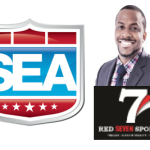
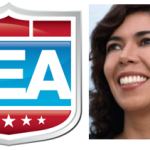
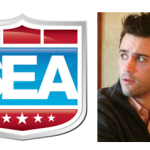
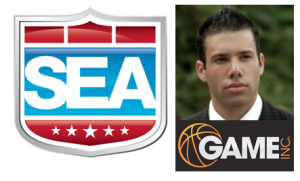
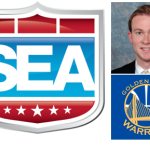
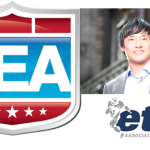
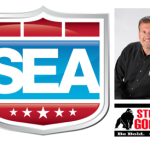
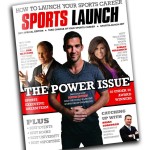
Superior work @Trevor. Awesome and Congrats to @Lewis on this momentous accomplishment. There is way more to come. Cheering.
@ChrisMcKinney thanks Chris!
@ChrisMcKinney Appreciate the honor Chris. Mag looks great.
Well-deserved honors. She gets it done! RT @ChrisMcKinney “Congrats” to @KatyEyoung1 for winning the SPORTS LAUNCH Thirty Under 30 Award!
@NiagaraPurpsAD thanks Ed. Great seeing you at Final4!
@pd_martin You got it, Paul! And btw, congrats on the promotion you just got! Wish we could have included it the mag!
@KatyEyoung1 You deserve it!
@JeffBoals thanks Jeff!
@KatyEyoung1 That is a big deal Katy, congrats. Well deserved.
@XSP4 thanks DJ!!
@ChrisMcKinney Thanks for including me on your list!
@joseph_yi Love what you’re doing, Joseph!
Great job Chris.
@TheSportsResume Thanks George.
@ChrisMcKinney http://t.co/s3KDdW8i
@JoshRebholzUCLA Thanks Josh!
@ChrisMcKinney @katrinagalas jail
@ChrisMcKinney thanks for the honour! Happy to be amongst a group of #thoughtleaders in the #sport business industry!
@alec_coughlin appreciate the RT alec!
@cmansfield27 they’re a great bunch! thanks for the RT!
@cardanmedia appreciate the RT!
@rooksrealtalk appreciate the RT!
@katrinagalas Glad you were part of the inaugural group! Look forward to watching your career grow.
@sportsnetworker you got it – dug the post!
#honored. young peeps with biz minds, read up @ChrisMcKinney “Congrats” to @AlexMaroko for winning SPORTS LAUNCH Thirty Under 30 Award!
@AlexMaroko your peeps can check it out here: http://t.co/BNYjEA4E
@Bigalpumpy Well deserved, mate!